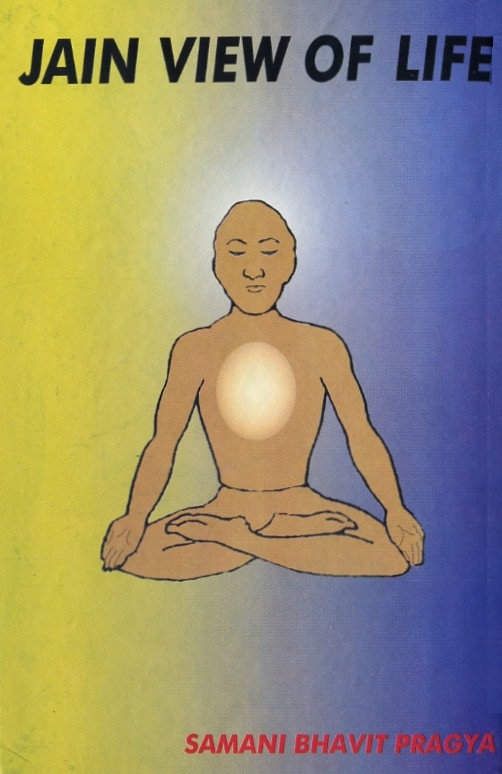Non-Violence and Vegetarianism
All living beings can be classified into two categories; mobile and immobile. One-sensed beings; earth-bodied, water-bodied, fire-bodied, air-bodied, and vegetation; are possessed of only one sense organ, that of touch. These are immobile living being. Insects, animals, and human beings are mobile living beings possessed of two, three, four, or five sense organs, namely touch, taste, smell, sight, and hearing. In conventional science, water, fire, earth, and air are regarded as non-living beings. The famous Indian scientist Sir Jagdish Chandra Bose made many experiments on plants. He demonstrated that vegetation responds to various kinds of stimuli. Their feelings can be measured by means of a galvanometer. Regarding the consciousness of water, plants, air, etc., it is said in Ayaro that if thirty two organs of a person have been cut off, that person has become dumb, deaf, or blind. In this situation, it is extremely difficult for one to express feelings of misery. Similarly, it is difficult for one-sensed beings to express their sensations. Ahimsa regards all souls, no matter what form, shape, or size they take, to be equal.
The Jain practice of vegetarianism is based on several important factors, the first of which is the violence and cruelty involved in killing animals as a food source for humans. Animals are not ours to eat. wear, experiment on, or for our entertainment. The second factor is that farm animals raised as a meat source ingest various types of hormones, antibiotics, tranquilizers, pesticides, and other types of harmful ingredients. The residue of these substances in the meat may cause cancer and other diseases. The third factor is that non-vegetarians require too much salt and alcohol in order to digest meat, and this can cause disease of the kidneys, liver, stomach, and heart as well as cancer and other diseases. The U.S. surgeon General has reported that 70% of deaths in the United States are related to diet, especially the over consumption of beef and saturated fats.
Scientists have found that high fat, high cholesterol, and low fiber content has been identified as important causative agents in heart disease, various forms of cancer, and other major killers whereas grains, lentils, fruits, and vegetables contain vitamins and minerals which protect us from disease. Champions of a non-vegetarian diet hold that meat is necessary as a protein source, but now it has been found that excessive protein is responsible for physical, mental, and emotional disorders. The daily requirement for protein for the average adult is not more than ten to fifteen grams.
The fourth factor is that food is for the sustenance of life, and our diet should be such that the body remains clean, the senses retain their ability, the mind becomes peaceful, and the soul attains spiritual sublimity. It is the mind which gives birth to thoughts, and if a person ingests meat and other foods which are the product of violence and bloodshed, how can we expect the mind to generate pure and noble thoughts? A person's character, behaviour, and emotions are all moulded by diet, and it follows that a non-vegetarian diet encourages fierceness, cruelty, hot temper, etc.
The foregoing factor Jain View of Life does not mean that all non-vegetarians are cruel, or that all vegetarians are merciful, but past history and modern studies show that non-vegetarians are more likely to be violent and cruel than are vegetarians. Tolstoy has said that a man fed on whiskey and dead bodies cannot do the finest work he is capable of, and George Bernard Shaw, when asked at a banquet why he refused to eat meat, replied, "I am a human being; my stomach is not a graveyard for dead animals."The fifth factor is that man is the eldest son of nature and is distinguished from other animals by having the greatest ability to think, reason, and plan courses of action. It is his moral duty to protect his younger brothers. He has the ability to improve upon nature. He should be vegetarian himself and try to influence others to become vegetarian. It is his noble duty to reduce violence and bloodshed in the world as much as is humanly possible. The sixth factor is that a vegetarian diet costs less and is more easily in reach of the poor in economically undeveloped nations. 1,300,000,000 could be fed by the grain and soybeans eaten by livestock in the U.S., and twenty pure vegetarians could be fed from the amount of land needed to feed one person consuming a meat-based diet. The seventh important factor is that humans are basically vegetarian in nature as the following table illustrates.
Carnivores, Meat-eating
Herbivores, Plant-eating
Omnivores Humans
Have claws for killing
Do not have claws
Do not have claws
Have sharp front teeth for tearing meat
Do not have sharp front teeth
Do not have sharp front teeth
Stomach acid is twenty times stronger
Weak stomach acid
Weak stomach acid
Perspire through the tongue
Perspire through the skin
Perspire through the skin
From all perspectives, vegetarianism is good for the physical, mental, and emotional health and wellbeing. It is a safeguard against violence, war, and hatred, and stands for unity, universality, love, and peace. Vegetarian diets are healthful and nutritionally adequate, and are universally endorsed by major health agencies.
 Samani Bhavit Pragya
Samani Bhavit Pragya
